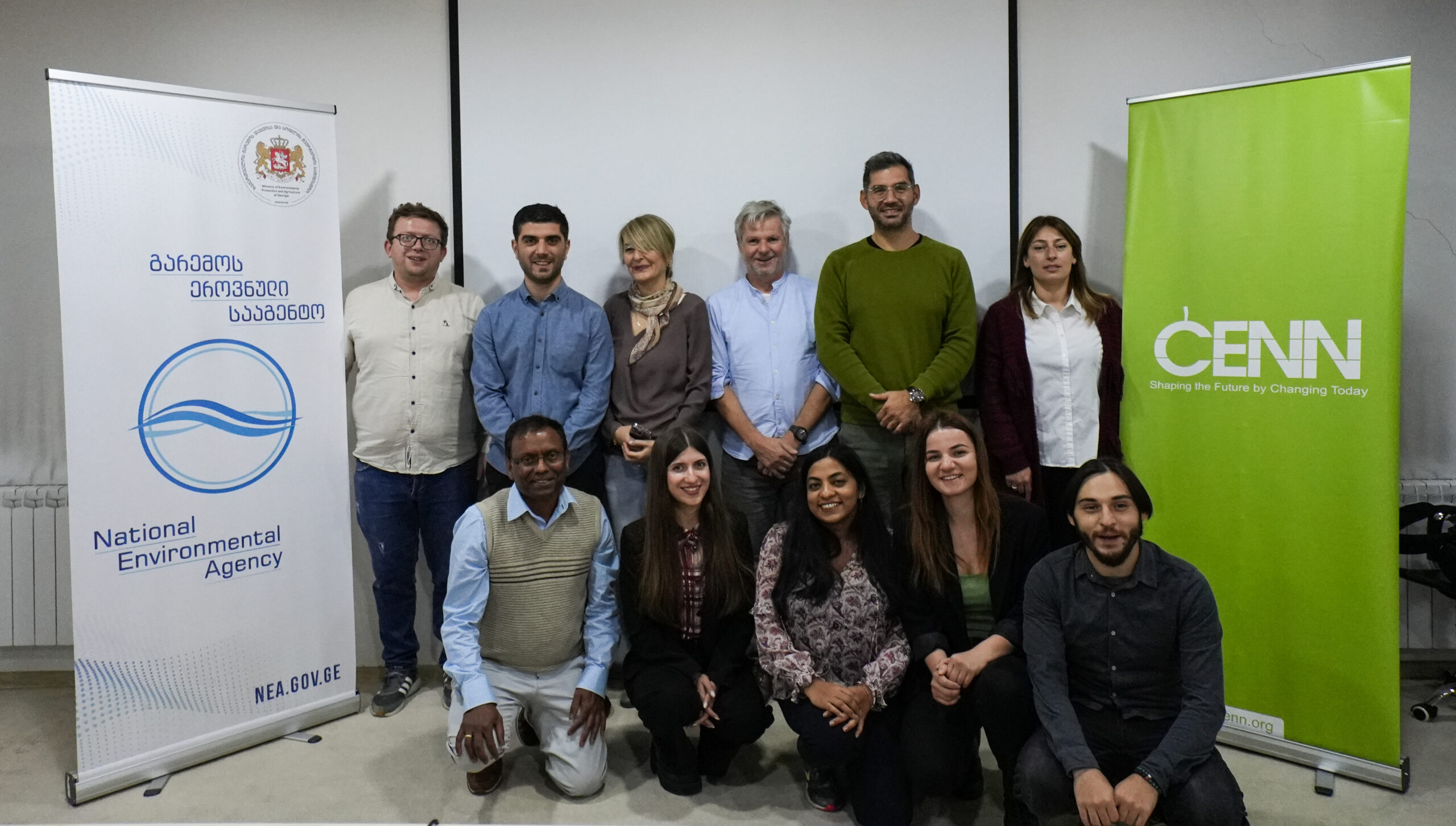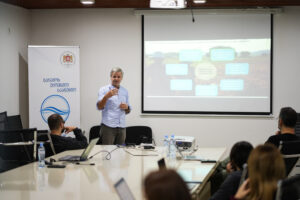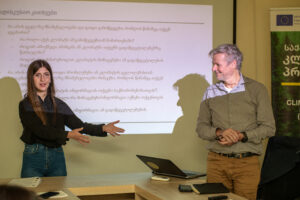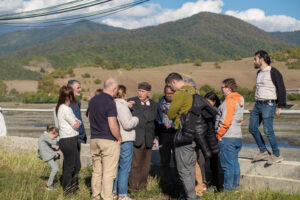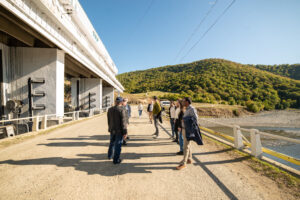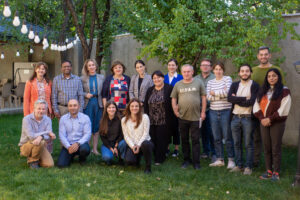From October 10-13, 2022, CENN and the NEA hosted international experts working in the field of hydrology.
The purpose of the visit was to plan the development of a streamflow prediction system in the Alazani River basin. Within the framework of the visit, hydrologists from the Delft Institute of Water Education (IHE Delft) and the Swedish Meteorological and Hydrological Institute (SMHI) held intensive meetings with the NEA and Georgian Amelioration, visited the headworks in the basin and met the members of the Alazani multi-actor platform (MAP). The MAP has been established by the project consisting of 14 representatives within the private and state sector. The platform identifies climate change-related challenges and defines needs in terms of climate services in the Alazani River basin.
Within the framework of the visit, a one-year action plan has already been prepared, according to which CENN, together with the NEA, with the involvement of stakeholders, will work on the development of the streamflow prediction system. Experts from member organizations of the project consortium will also support the work process.
The visit took place within the Innovating Climate Services through Integrating Scientific and Local Knowledge (I-CISK) project, financially supported by the European Union’s Horizon 2020 Research and Innovation Programme. The project is being implemented by the Institute for Water Educational (IHE Delft) together with a consortium of 13 member organizations.
The main objective of the I-CISK project is to develop next-generation CS that follows a social and behaviourally-informed approach for co-producing CS that meet the climate information needs of citizens, decision makers and stakeholders at the spatial and temporal scale relevant to them.
CENN has represented the project in Georgia since 2021. The National Environmental Agency is the main partner of CENN within the project.
